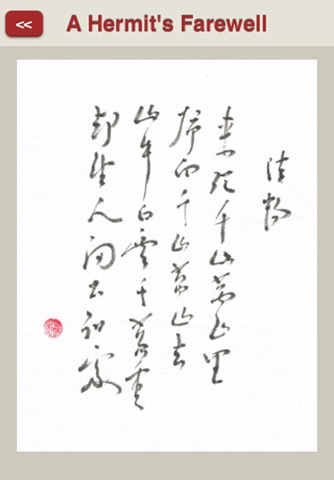
Tang Poetry for Students of Chinese app for iPhone and iPad
Developer: Clavis Sinica
First release : 30 Mar 2014
App size: 52.61 Mb
Chinese Poetry provides a window like no other into the Chinese language and its people. By working with the interactive learning tools in this mobile app, students gain an intimate and deeply satisfying familiarity with the sounds, characters, and meanings of a selection of literary gems chosen for their brevity and simplicity.
Poetry and painting are inseparable in China, so we begin with a calligrapher’s rendering of the selected poem that conveys its visual dynamism.
From here we turn to the Text Reader module, which introduces the sounds and meanings of each line of the poem. We can touch any character to display its meaning and pronunciation. And we can listen repeatedly to each line of the poem to imprint its sounds on our memory.
The flashcards tool tests our recollection of the new words and characters we’ve just learned. If we stumble on a character, the app displays a list of commonly used words incorporating that character, to help cement it in our memory.
Once we’re able to recognize the characters in the poem, it’s time to learn to write them. The app uses stroke animations to demonstrate the correct formation of each character, and then invites us to practice drawing it ourselves, providing immediate stroke by stroke feedback along the way.
Translating poetry is a notoriously difficult task, so the app offers three different English renderings of each poem to help the student to grasp the range of meanings it suggests.
Now it’s time to put the pieces together and test our recall of the poem as a whole. After reading it through one more time, we can scramble the character tiles, and then attempt to restore them to their correct positions based on our memory of the sounds and characters of each line.
A brief biographical note, finally, provides a glimpse of the personality behind the poem and the historical context in which it was written.



